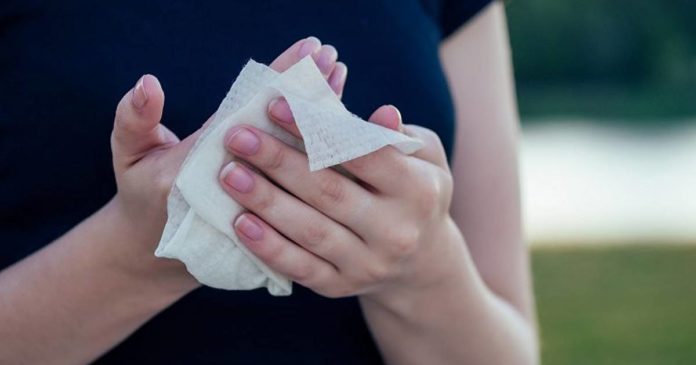The coronavirus crisis has resulted in many people starting to use or using more disposable wipes. While very convenient, the problem is the nonwoven textiles used for wipes generally aren’t particularly environmentally friendly.
Disposable wipes are used in all sorts of applications, including hand sanitising, makeup removal, baby care and general cleaning. They are often made with synthetic materials that aren’t biodegradable; winding up in landfill and aquatic environments. These products are also notorious for clogging up sewage lines and subsequently creating “fatbergs“. The fatbergs, aside from being totally gross, are expensive and time-consuming to clear.
Perhaps industrial hemp may be the solution, or part of it, for more environmentally friendly disposable wipes. A company pursuing this is Canada’s Bast Fibre Technologies Inc. (BFTi), which is working with plant-based natural fibres such as hemp and flax to create sustainable nonwoven materials.
According to the company:
“Our products are 100% compostable, contain no microplastics and contain no toxins. Products made with 100% Bast fibre can be composted in the same soil used to grow new bast fibre plants – a true representation of a circular economic model.”
Bast fibre is the outer material of the stem of bast plants, one of which is hemp. Part of the function of these fibres is give the plants strength and in the case of hemp can be metres long. The fibres can be cut to size to suit the application.
A switch to hemp and other plants as a source of fibre for disposable wipes doesn’t need to mean an inferior product. BFTi says its proprietary fibres offer better performance characteristics when compared with traditional synthetic and semi-synthetic fibres.
Early this month BFTi announced the closing of a $4.5M CAD equity financing; with the investment led by the Lightburn Group and Natural Products Canada (NPC). The cash will enable the company to complete trial work with its customers, lodge additional IP and complete construction of a dedicated bast fibre processing facility.
“Most of the hemp grown in Canada today is used for CBD production or as a seed crop for food,” said NPC CEO Shelley King. “BFTi will play an important role in building long-term demand for hemp straw and realizing the vision of whole hemp plant utilization.”
This is one of the other amazing attributes of hemp – just about every part of the plant can be used; and what can’t can be simply returned to the soil to support the growth of more hemp.
Related: How Hemp Fibre Is Made


